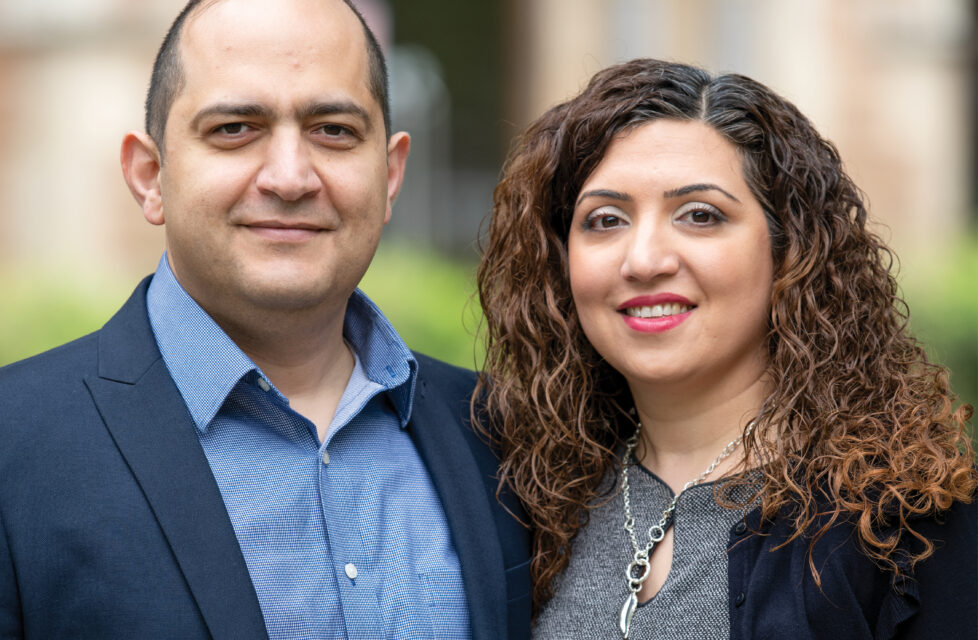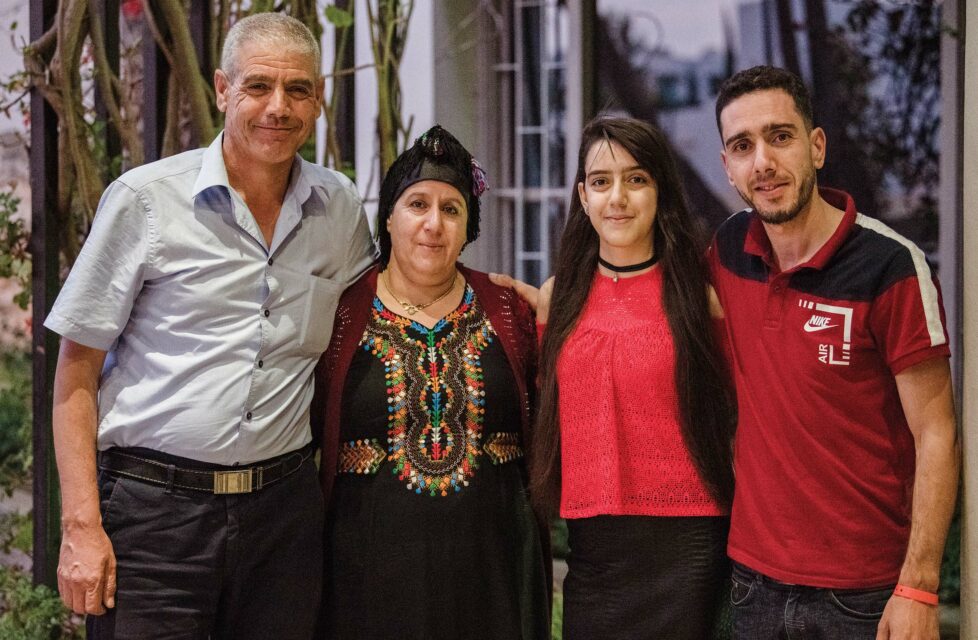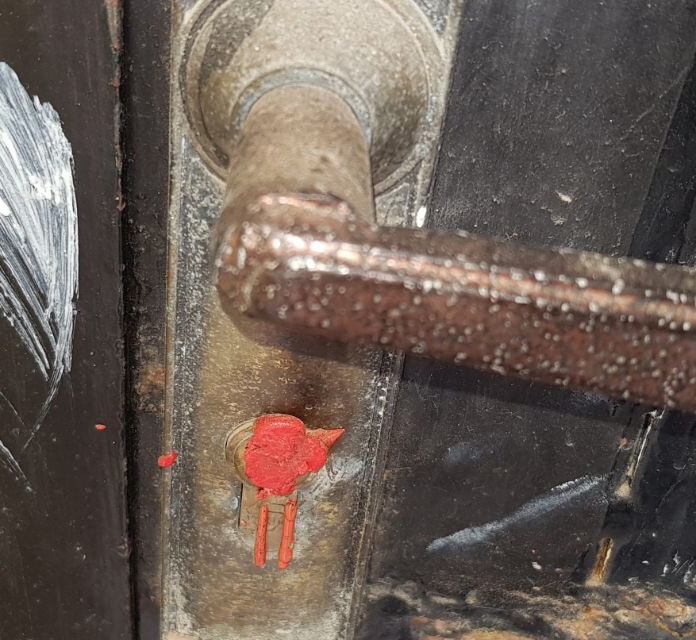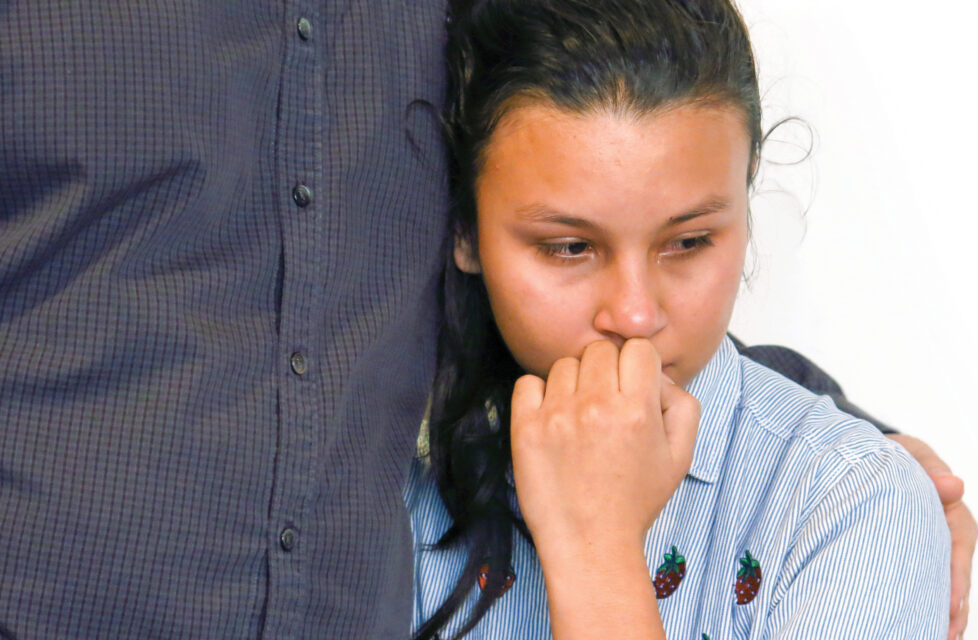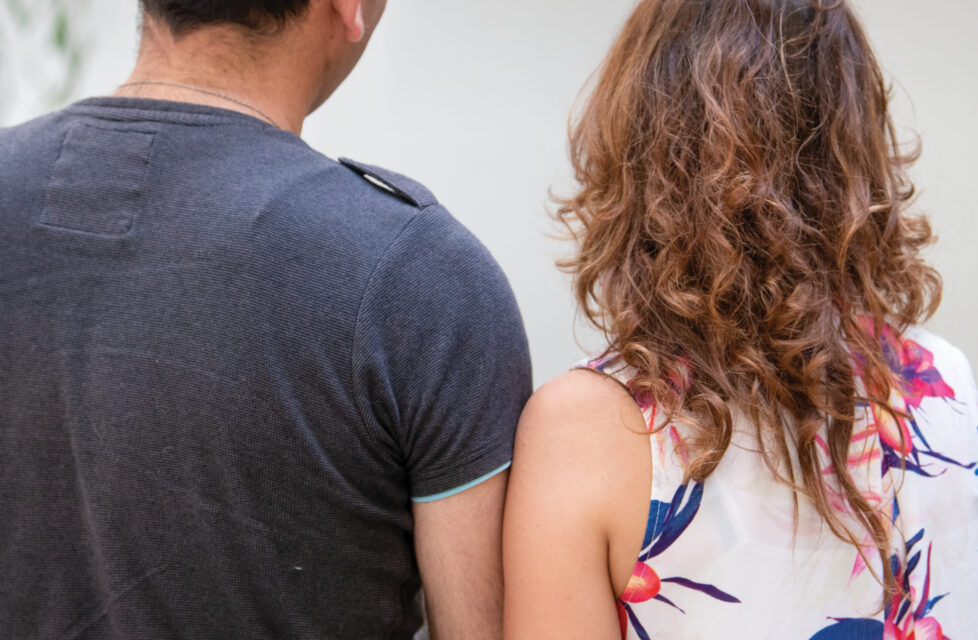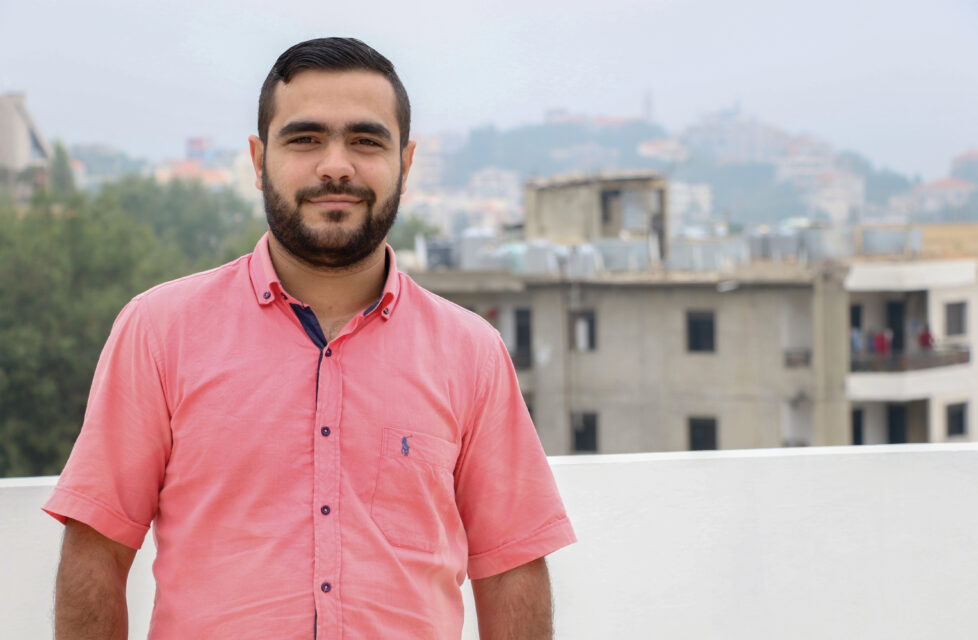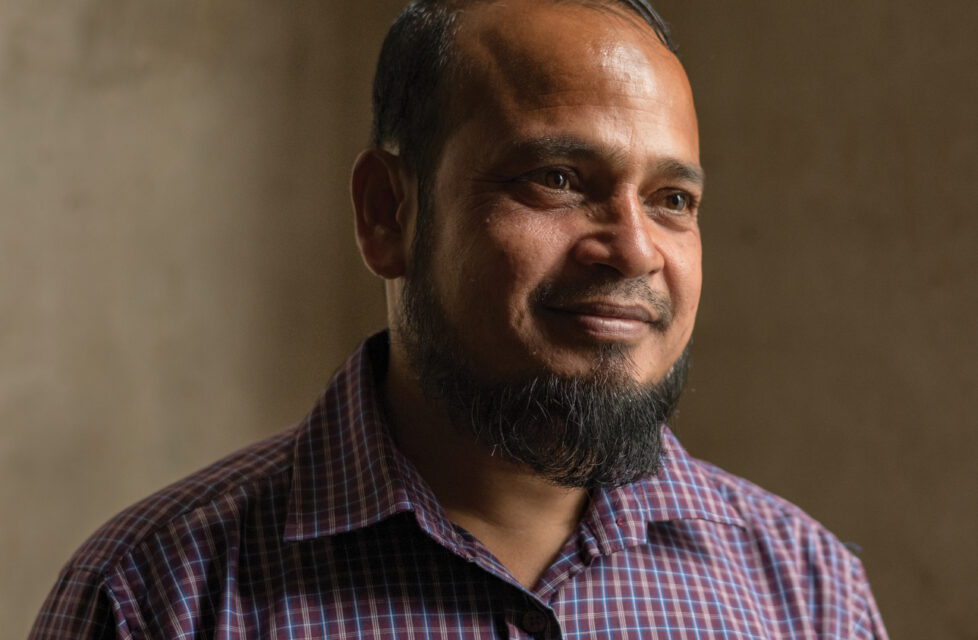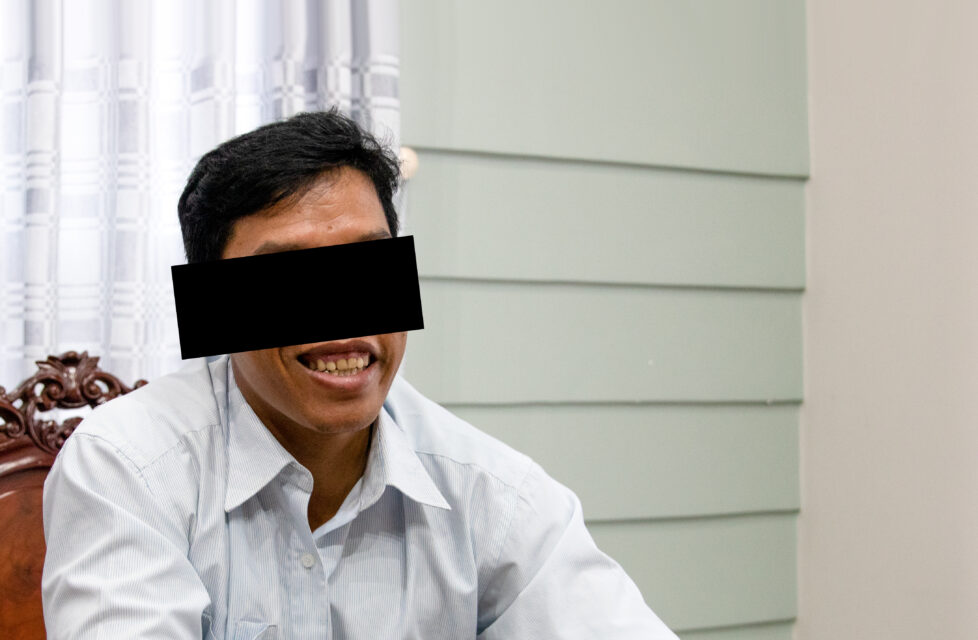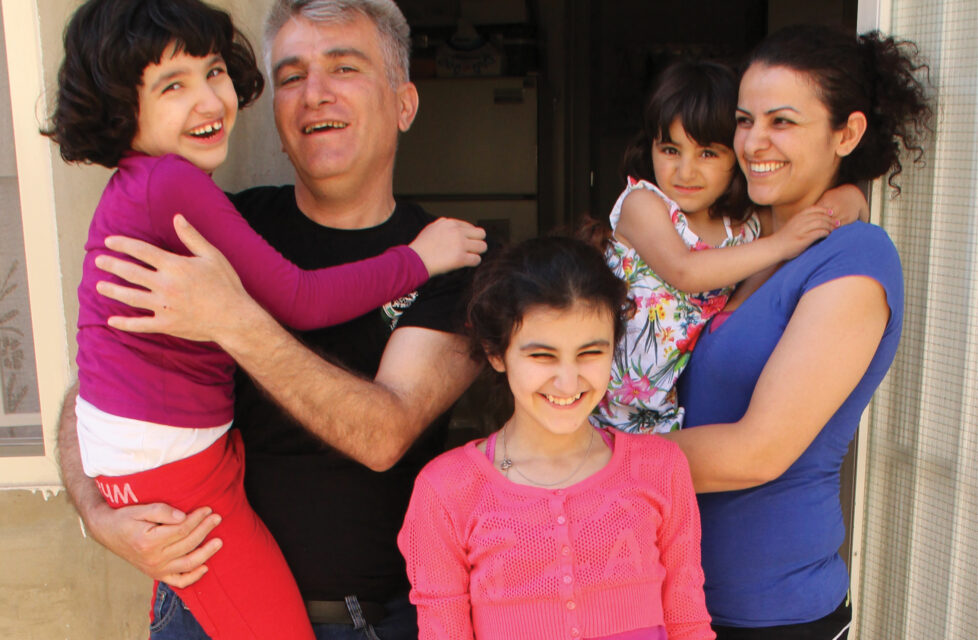When Mustafa learned that his younger brother, Omar, had become a Christian after hearing the gospel from a visiting evangelist in their Moroccan city, he felt he had no choice but to act. On that day in 2005, he grabbed his brother’s Bible, a book he considered counterfeit and unclean, and burned it along with the rest of Omar’s Christian literature. As the oldest son, he then kicked Omar out of their family’s home; his hatred of Christians barred him from sharing a house with an apostate. In Morocco, Islam is entwined with every aspect of life, and the country is ruled by a monarch believed to be a direct descendant of the Prophet Muhammad. Mustafa stayed in contact with Omar, hoping to draw him back to Islam. He eventually visited his brother and asked him for a Bible; he thought that if he could show Omar the Bible’s errors, he would return to Islam. Omar gladly gave his older brother a Bible and pen, suggesting that he mark each verse that he found problematic. The brothers then discussed the verses that Mustafa highlighted, and Mustafa felt increasingly torn between Islam and Christianity. When he read Matthew 7:7, “Ask, and
Read MoreMourning the loss of her martyred father in Iran, Rashin promised the Lord she would follow in his footsteps. On Dec. 3, 1990, 13-year-old Rashin Soodmand’s life changed forever. That day, she learned that the Iranian government had executed her beloved father for leaving Islam, a decision he had made at age 17. Rashin had grown accustomed to her father’s repeated confrontations with Iran’s Islamic authorities. While still a toddler, she moved with her parents to the city of Mashad, Iran, where her father had been raised as a Muslim. In 1980, during the early days of Iran’s Islamic Revolution, her parents started a church in their basement, and after learning of the gatherings, the religious police repeatedly arrested her father, Hossein Soodmand, and other believers. Despite suffering physical and psychological torture during his brief stints in jail, nothing prevented Hossein from sharing Jesus Christ. While Hossein’s bold faith inevitably led to persecution, it also helped protect and eventually inspire Rashin’s faith. She and her siblings were the only Christians at their school, so her father taught and quizzed them on fundamentals of the faith in order to counter their mandatory Islamic studies. “That was a challenge for me,” Rashin
Read MoreSimo is a tall man with straight posture, hinting at his careers in the army and later as a police investigator. Like many of his countrymen, Simo was born a Muslim but had always held his faith lightly. It was tradition and it was culture, but he had felt more loyalty to his country than to his Muslim religion. In the early ’90s, Algeria transitioned from a one-party political system to a multi-party system, and surprisingly an Islamist party then won the election. To avoid the possibility of a government led by extremists, the army quickly took over, launching an insurgency that lasted six years. Simo served as a police detective during the insurgency, and one day he found himself interrogating a young Muslim man who justified his violent actions by citing the Quran and the teachings of the Prophet Muhammad. “I thought, if all this is right and Islam is telling us to kill, then Islam is not a religion and I cannot follow it anymore,” Simo said. Disillusioned with the religion he had grown up in, Simo began to consider Christianity. After visiting some churches, including a Kabyle Protestant church, he noticed a real difference between followers of
Read MoreChristianity has flourished in Algeria over the last few decades, growing at a rate of 8% annually compared with the global evangelical growth rate of 2.6%. Most of the growth in Algeria has occurred among the Kabyle Berber people, a minority ethnic group in the mountainous eastern part of the country who speak Kabyle rather than Arabic. Today, Algeria is home to the largest congregation of Christian converts from Islam in the world. And the Algerian government has taken notice, closing at least 11 churches in 2018. In 2018, the Ministry of Religion sent a threatening letter to the church in Tizi Ouzo where Dassin serves as worship leader. The church, warned authorities, might be closed down because of inadequate safety equipment such as fire extinguishers. Leaders of the 250-member Kabyle church knew they must take the government’s warning seriously because it had already closed other churches in the region. However, they also knew the complaints were invalid because the Ministry of Religion was citing old information. The church had addressed the safety issues long ago, and authorities had not re-inspected the building. “They just want to harass us again,” Dassin explained. Tension has remained high between the church and
Read MoreLiliana struggled with faith after her father’s murder by Marxist guerrillas in Colombia, but God provided healing and is leading her to use her testimony to help people in another war-torn country. Liliana didn’t choose to grow up in Colombia’s treacherous frontier region, where Christians sometimes receive death threats just for attending church. And she didn’t choose to watch her family’s faith erode in a torrent of grief after her father’s murder. But she sees now that God used these trials and setbacks to direct His purpose for her life. And for Liliana, with that purpose came redemption and healing. Liliana’s parents, Amelo and Christina, moved to one of Colombia’s most treacherous areas to serve as church planters before Liliana was born. They were sent to pastor a church in the notoriously dangerous region along the Colombia-Venezuela border, where the Colombian military struggled to suppress a guerrilla insurgency by the Armed Revolutionary Forces of Colombia (FARC). The FARC funded its rebel activities in part with cash from Colombia’s lucrative cocaine trade. And in response, drug lords formed right-wing paramilitary groups to counter the FARC’s incursions into their drug-trafficking monopoly, forming a third front in the chaos of Colombian violence. Although
Read MoreTani, a Tunisian, and Boutros, a Syrian, had “seen” one another engaging with Muslim seekers in Christian chat rooms and respected one another as fellow Christian converts from Islam. Then, when they finally met face to face at an organizational meeting in Egypt, they fell in love. When it became clear that God was bringing them together, they began to pray about a legal issue that threatened to keep them apart. Tani’s Tunisian ID card identified her as a Muslim, while Boutros was registered as a Christian. After becoming a Christian as a young man in Syria, Boutros had fled to Egypt to escape family members who were trying to kill him. He was then adopted by a Coptic Christian family in Egypt. Neither Tunisia nor Egypt would allow a Muslim woman to marry a Christian man, but by God’s grace the Tunisian embassy in Egypt issued the paperwork, and the couple were able to marry in 2009. Tani and Boutros continued their work, reaching out to Muslims on the Internet, but now they were working together. Called to Tunisia In 2010, the couple felt called to Tani’s home country of Tunisia. “We were praying all the time,” Tani said,
Read MoreJaffar’s maimed leg throbbed as he sat awake in his room in the middle of the night. The 23-year-old Iraqi felt the burden of his loneliness and depression like a physical weight on his shoulders. His friend was dead, and his faith was gone. In desperation, he challenged the Creator of the universe: “If you are there, show yourself!” Exhausted from pain, frustration and weeping, Jaffar finally fell asleep. It was then, he said, that he experienced an amazingly detailed dream. Jaffar said he dreamed that he was perched on a narrow bridge wide enough for only one. Beneath him was an abyss of smoke and fire, radiating heat upward. He could hear the screams of others behind him as the bridge crumbled beneath their feet and they plunged into the gulf below. Terrified, he took one careful step after another. After reaching a door at the end of the bridge, he knocked and a man in a white garment opened the door. “Who are you?” Jaffar asked. The man told him he was the owner of the door and invited him in. He warned Jaffar, however, that if he stepped through the door, he could never go back out.
Read MoreGrowing up in predominantly Muslim Bangladesh, Fedu’s life was permeated by Islam. His father was an imam, and his grandfather told him stories of pilgrimages to Mecca. Fedu studied at an Islamic school, and, like his father and three brothers, became a Muslim scholar and imam, eventually teaching at a mosque in the Bangladeshi capital of Dhaka. While working at the mosque one day in 1996, Fedu met a student named Azad from a nearby college. The two struck up a conversation and quickly became friends. However, when Fedu learned two years later that Azad had become a Christian, he began to worry about him. He knew Muslims at his mosque would find out about Azad’s conversion, and he also knew the local Muslim authorities were some of the worst persecutors of Christians in Bangladesh. Instead of standing up for his friend, Fedu stopped talking to him altogether. Then, 15 years later, Fedu received a call from Azad, who had felt God nudging him to reconnect with his old friend. As the two caught up on each other’s lives, Azad mentioned how Jesus had changed his life. And when they finally met in person, Azad gave Fedu a Bible and
Read MoreEmmanuel resented his father’s ministry work in Vietnam and the repeated imprisonments it caused. But as he saw God working through him, his own work began to mirror his father’s commitment. Emmanuel has many painful childhood memories. He will never forget the fear he felt every time Vietnamese authorities arrested his father while preaching at a Sunday service or while teaching believers from various tribes at their home. He would sometimes cling to his father’s leg, trying to prevent the police from taking his daddy. And he still remembers the loneliness and abandonment he felt while his father was imprisoned. Emmanuel resented his father’s work, and it didn’t end when his father was out of prison. The resentment resurfaced every time his father was unable to attend a special school event because of his ministry work. Emmanuel often climbed to the top of a coconut tree to cry and vent his frustration toward his father and God in private. Then, at age 11, Emmanuel’s bitterness reached a new level as his father began to serve what became three years in prison. “I got angry with my father,” Emmanuel said. “Sometimes I didn’t even want to visit my father in prison.”
Read MoreIn late February 2015, the self-proclaimed Islamic State (ISIS) moved into a historically Christian region in northeastern Syria, driving Christians out of a dozen villages. Raman, an Assyrian Christian, and the rest of his village’s 130 households had known the attack was coming. For the first part of the war, the area was under Kurdish control. As the war progressed, ISIS moved in and established a camp just two miles from the village. Both sides sought the strategic location of the village, which was located at the top of a mountain. For several weeks before, ISIS fighters had shopped in the village weekly for vegetables. The jihadists warned the villagers to leave as there would be a battle. The men sent their wives and children away for protection, and they prepared to defend the village. Then on a Friday morning, ISIS soldiers appeared at the historic Assyrian church that had been standing for centuries. They told the Christians, “We are an Islamic nation. Remove the cross from your church.” The next day, they returned with two trucks full of men with weapons, and they threatened the priest: “If you refuse, we will cut your neck.” “We obeyed,” Raman said. “We
Read More

